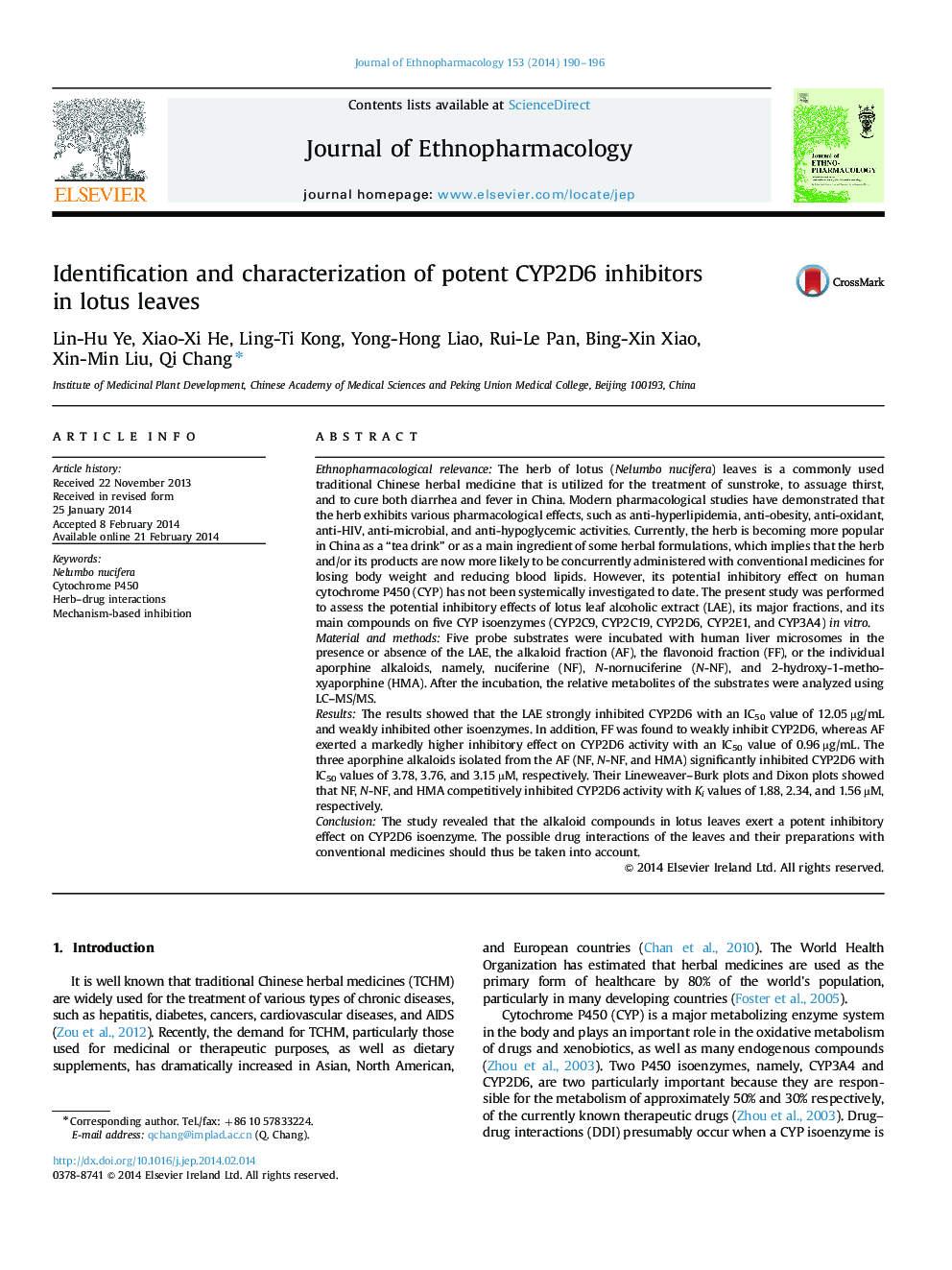| کد مقاله | کد نشریه | سال انتشار | مقاله انگلیسی | نسخه تمام متن |
|---|---|---|---|---|
| 2545382 | 1123952 | 2014 | 7 صفحه PDF | دانلود رایگان |

Ethnopharmacological relevanceThe herb of lotus (Nelumbo nucifera) leaves is a commonly used traditional Chinese herbal medicine that is utilized for the treatment of sunstroke, to assuage thirst, and to cure both diarrhea and fever in China. Modern pharmacological studies have demonstrated that the herb exhibits various pharmacological effects, such as anti-hyperlipidemia, anti-obesity, anti-oxidant, anti-HIV, anti-microbial, and anti-hypoglycemic activities. Currently, the herb is becoming more popular in China as a “tea drink” or as a main ingredient of some herbal formulations, which implies that the herb and/or its products are now more likely to be concurrently administered with conventional medicines for losing body weight and reducing blood lipids. However, its potential inhibitory effect on human cytochrome P450 (CYP) has not been systemically investigated to date. The present study was performed to assess the potential inhibitory effects of lotus leaf alcoholic extract (LAE), its major fractions, and its main compounds on five CYP isoenzymes (CYP2C9, CYP2C19, CYP2D6, CYP2E1, and CYP3A4) in vitro.Material and methodsFive probe substrates were incubated with human liver microsomes in the presence or absence of the LAE, the alkaloid fraction (AF), the flavonoid fraction (FF), or the individual aporphine alkaloids, namely, nuciferine (NF), N-nornuciferine (N-NF), and 2-hydroxy-1-methoxyaporphine (HMA). After the incubation, the relative metabolites of the substrates were analyzed using LC–MS/MS.ResultsThe results showed that the LAE strongly inhibited CYP2D6 with an IC50 value of 12.05 µg/mL and weakly inhibited other isoenzymes. In addition, FF was found to weakly inhibit CYP2D6, whereas AF exerted a markedly higher inhibitory effect on CYP2D6 activity with an IC50 value of 0.96 µg/mL. The three aporphine alkaloids isolated from the AF (NF, N-NF, and HMA) significantly inhibited CYP2D6 with IC50 values of 3.78, 3.76, and 3.15 µM, respectively. Their Lineweaver–Burk plots and Dixon plots showed that NF, N-NF, and HMA competitively inhibited CYP2D6 activity with Ki values of 1.88, 2.34, and 1.56 µM, respectively.ConclusionThe study revealed that the alkaloid compounds in lotus leaves exert a potent inhibitory effect on CYP2D6 isoenzyme. The possible drug interactions of the leaves and their preparations with conventional medicines should thus be taken into account.
Figure optionsDownload high-quality image (214 K)Download as PowerPoint slide
Journal: Journal of Ethnopharmacology - Volume 153, Issue 1, 11 April 2014, Pages 190–196